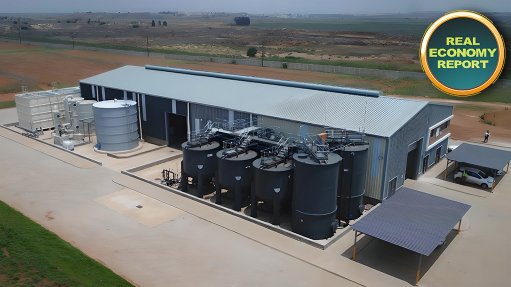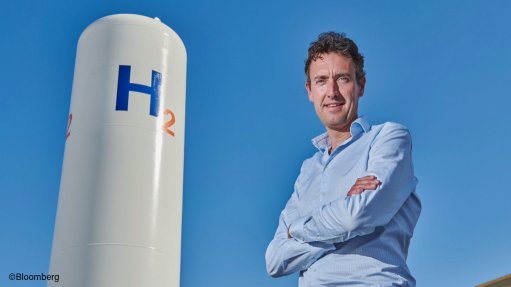China’s change of tack
Many countries in Africa and elsewhere have been the beneficiaries of China’s largesse for many years. This has largely been in the form of financing for infrastructure projects, and I have often cautioned against getting heavily indebted to the Asian nation, given its tendency to show little or no mercy where a recipient of its ‘benevolence’ fails to keep up with repayments.
To illustrate the soundness of my cautious disposition, I often cite what happened to the Sri Lankans a few years ago, when they defaulted on loans advanced for the construction of the Hambantota port. Evoking the not-so-fine print of the agreement the two parties had entered into, the Chinese essentially grabbed the massive port and a large swathe of nearby land. For the next 90-plus years, Chinese State-owned companies will be the landlords at the multibillion-dollar facility.
In Africa, China has established itself as the biggest bilateral lender over the past two decades, helping to bankroll projects ranging from dams and roads to railway lines, airports and power stations. Regular readers of this column will recall that Eskom – or Eishkom, as the beleaguered electricity utility is pejoratively referred to – has also found it too difficult to resist the urge to get in on the act of receiving Chinese debt. In July 2018, the parastatal signed a R33.4-billion government-backed loan agreement with the China Development Bank for capital projects at the Kusile coal-fired power station, in Mpumalanga.
The amounts advanced to African countries are dwindling, however. The Global Development Center at the US’s Boston University reported in May that China made 11 loan commitments to African countries totalling $1.9-billion in 2020. While this is not an amount to be sniffed at, it’s a far cry from the $8.2-billion committed only a year earlier – in 2019.
But the paring down of Chinese lending does not at all imply a scaling down of the country’s involvement in Africa. For instance, Chinese companies are, by some accounts, investing so quickly in African lithium mining projects that, by 2030, China is expected to control 75% of the production of the mineral, which is largely used in electrical vehicles.
A new dimension to China’s involvement in our continent’s affairs is its foray into the realm of issues that are purely internal to Africa. As an example, it has taken it upon itself to help resolve conflicts on the continent and it seems to have prioritised East Africa, where conflicts are raging in Ethiopia, Sudan and South Sudan. In June, a top Chinese envoy convened a meeting attended by Foreign Ministers or Deputy Foreign Ministers from these countries, as well as Kenya and Eritrea, in Ethiopia’s capital city, Addis Ababa. The intention was to find a solution to long-running conflicts in the region, including the one in Ethiopia, which appeared to be the envoy’s main target.
It’s not irrational to assume that China’s decision to venture into the conflict resolution terrain in Africa is driven by a desire to ensure that the African countries to which it advanced loans will be able to fulfil their repayment obligations.
What worries me is China establishing strong relations with African governments, which, I imagine, will be one of the outcomes of its deep involvement in diplomatic efforts to end African conflicts. This is because of its tendency to export its bad habits, such as autocracy. I hear this is already happening, with media reports having emerged that a new training school has been set up in Tanzania by the Chinese Communist Party’s International Liaison Department, which promotes the country’s ideology and influence abroad.
The school welcomed its first intake of 120 “future leaders” from the ruling parties of Angola, Mozambique, Namibia, South Africa, Tanzania and Zimbabwe in June.
Comments
Press Office
Announcements
What's On
Subscribe to improve your user experience...
Option 1 (equivalent of R125 a month):
Receive a weekly copy of Creamer Media's Engineering News & Mining Weekly magazine
(print copy for those in South Africa and e-magazine for those outside of South Africa)
Receive daily email newsletters
Access to full search results
Access archive of magazine back copies
Access to Projects in Progress
Access to ONE Research Report of your choice in PDF format
Option 2 (equivalent of R375 a month):
All benefits from Option 1
PLUS
Access to Creamer Media's Research Channel Africa for ALL Research Reports, in PDF format, on various industrial and mining sectors
including Electricity; Water; Energy Transition; Hydrogen; Roads, Rail and Ports; Coal; Gold; Platinum; Battery Metals; etc.
Already a subscriber?
Forgotten your password?
Receive weekly copy of Creamer Media's Engineering News & Mining Weekly magazine (print copy for those in South Africa and e-magazine for those outside of South Africa)
➕
Recieve daily email newsletters
➕
Access to full search results
➕
Access archive of magazine back copies
➕
Access to Projects in Progress
➕
Access to ONE Research Report of your choice in PDF format
RESEARCH CHANNEL AFRICA
R4500 (equivalent of R375 a month)
SUBSCRIBEAll benefits from Option 1
➕
Access to Creamer Media's Research Channel Africa for ALL Research Reports on various industrial and mining sectors, in PDF format, including on:
Electricity
➕
Water
➕
Energy Transition
➕
Hydrogen
➕
Roads, Rail and Ports
➕
Coal
➕
Gold
➕
Platinum
➕
Battery Metals
➕
etc.
Receive all benefits from Option 1 or Option 2 delivered to numerous people at your company
➕
Multiple User names and Passwords for simultaneous log-ins
➕
Intranet integration access to all in your organisation
















